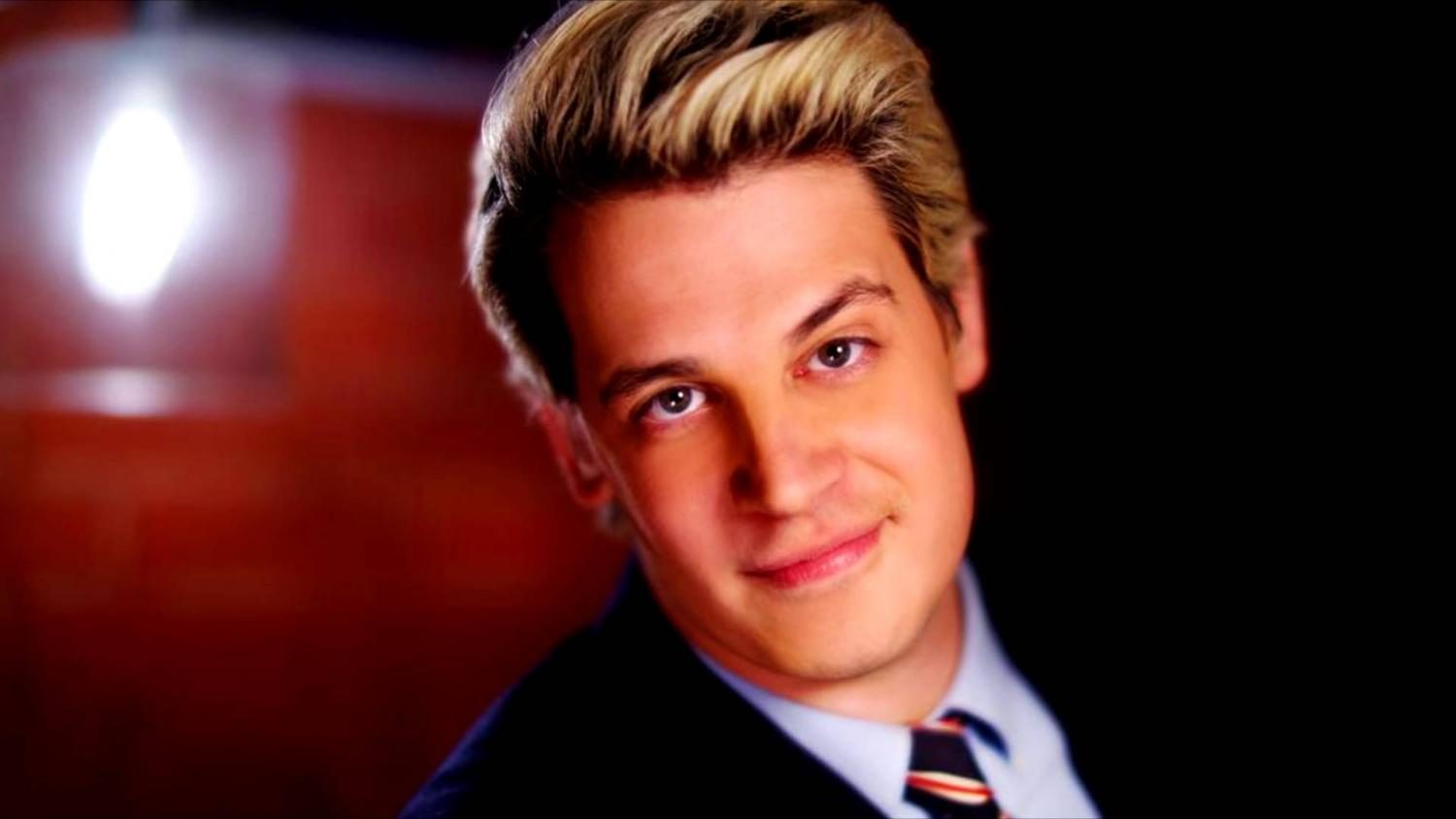Milo Yiannopoulos and Freedom of Speech: AU YAL Event Creates Controversy on Campus
American University’s Young Americans for Liberty (YAL) caused uproar in the student body after the group invited self-proclaimed “professional provocateur” Milo Yiannopolous to speak at the university on April 21.
Yiannopolous, British journalist and the technology editor for conservative website Breitbart, is known for his controversial opinions about rape culture, feminism and the LGBT community. Due to his beliefs, several British universities have banned him from their campus. Last year, Yiannopolous attended London’s SlutWalk and held up a sign that said, “Rape Culture’ and Harry Potter. Both Fantasy.” He was later escorted off the premises.
Several AU students engaged in heated discussion over Yiannopolous’s visit on the Facebook event page. Many expressed outrage at YAL’s decision, while others responded that Yiannopolous’s speech, while inflammatory, was still protected by the First Amendment.
Catherine Harlos, a sophomore, was shocked when she looked up who Yiannopolous was and what he stood for. Although many argued for freedom of speech on Facebook, Harlos, like other students on the page, described his speech as “violent.” She defined violent speech as speech that feeds into “violent ideologies that result in people being killed or hurt.”
“You can say whatever you want, [but] you have to be responsible for what you say and the values embedded in what you’re saying,” she said. “One person saying something isn’t going to directly result in ‘x’, but over time, on a macro level, it’s going to have a bigger effect.”
Harlos said that she will attend the event. According to Harlos, there are plans to protest, but nothing has been confirmed yet.
In the meantime, the Facebook page has turned into what some people on the page called a “flame war.” Conversations have become personal attacks, and one person posted an image of a Swastika on top of a Confederate flag with the caption, “Be offended.”
As a result of the offensive content on the page and the choice of Yiannopolous as a speaker, the message that YAL is hoping to convey may be lost in the heated arguments and chaos.
“There’s this perception that YAL is just doing this because they’re trying to upset people… I just wanted to have an event where a lot of people can come to and a lot of people can exchange ideas,” said John Nagle, president of the AU YAL chapter.
Nagle said that YAL wishes to address and create discussion about freedom of speech on campuses across the U.S. and how self-censorship has become a norm as a result of political correctness.
“No idea should be off limits,” Nagle said.
Nagle secured a stop at AU during Yiannopolous’s tour after he reached out to the president of the YAL chapter at Rutgers’s University, who invited Yiannopolous to speak on their campus earlier this month.
Nagle believed that Yiannopolous’s style, whether one disagreed or agreed with him, would be “helpful in getting the conversation going.” The lecture will be short, and the Q&A will be long, according to Nagle. He hopes that people will come with at least an open mind and to hear from different perspectives at the event.
Killian MacDonald, a junior, agreed with Nagle, as she believed that speakers with a wide range of views should be heard.
“I do believe that, as a whole, the AU student body needs to be pushed to listen to other voices, whether you agree with them or not,” MacDonald said.
For MacDonald, the conversation needed to change from asking why he was here to figuring out a plan for what to do when Yiannopolous is here. She believed that banning him will only encourage him and that he may consider it a form of victory.
MacDonald understands that Yiannopolous may write her off, but she said that she isn’t concerned about him.
“I don’t care about what Milo says that night … but the questions I think our peers will ask and the conversation afterwards as people walk in and out, that’s where it’ll be the most vital to make an effect.”
While students can call for Yiannopolous to be banned from AU, the school’s policy on free expression protects the “right of free speech and freedom of the individual to make one’s own disclosures.” The university also recognizes that “such freedom exists in the context of law and in responsibility for one’s actions.”
In other words, it will most likely abide by the First Amendment, just as the Faculty Senate ruled against trigger warnings in the classroom.
YAL hopes to continue conversations about freedom of speech on campus. Nagle explained that he and the e-board discussed other possible speakers who range in political beliefs, and that freedom of speech on campuses will be their focus this semester. Other speakers so far have included Greg Lukianoff, president of the Foundation for Individual Rights in Education (FIRE).
“I’d love to see all people come together to the event, and, even if they disagree vehemently, they ask a question and engage with Milo and they try to have an exchange of ideas,” Nagle said. “That’s really what bringing him to campus was all about.”
The event will be held on April 21 at 8:10 p.m. in the Mary Graydon Center Club.












